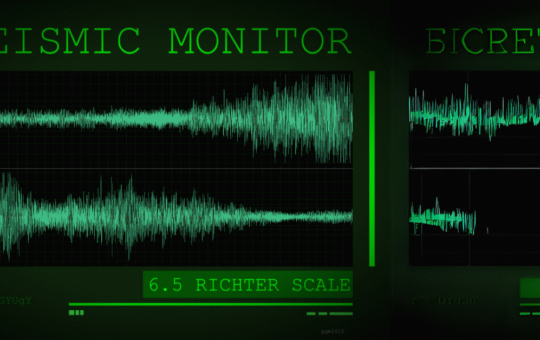
Level 6 Diploma in Advanced Reservoir Management and Modeling
- Specialized Knowledge: Gain expertise in advanced reservoir management and modeling techniques to enhance your ability to manage oil and gas reservoirs.
- Hands-On Learning: Apply theoretical knowledge to real-world reservoir modeling scenarios and optimize reservoir performance.
- Career Opportunities: Open doors to high-level career opportunities in reservoir engineering, management, and oil and gas exploration.
- Industry Relevance: Learn advanced strategies and tools currently used in the oil and gas sector to improve reservoir productivity and sustainability.
- Global Recognition: The qualification is globally recognized and respected within the oil and gas industry, providing access to global career opportunities.
- Design and apply advanced reservoir management strategies to optimize oil and gas recovery.
- Understand and implement advanced reservoir simulation techniques for accurate prediction of reservoir behavior.
- Analyze and model complex reservoir fluid dynamics and their impact on production.
- Utilize state-of-the-art software tools for reservoir simulation, performance analysis, and management.
- Integrate reservoir management data with geological and geophysical information to create comprehensive reservoir models.
- Develop enhanced oil recovery (EOR) strategies to improve reservoir performance and extend field life.
- Implement techniques for managing reservoir pressure, fluid distribution, and production optimization.
- Apply decision-making models to assess reservoir performance, manage risks, and allocate resources effectively.
- Introduction to Reservoir Engineering and Management
- Overview of reservoir engineering, fundamentals of reservoir behavior, and the role of reservoir management in the oil and gas industry.
- Key challenges in reservoir management and strategies for overcoming them.
- Reservoir Characterization and Data Integration
- Techniques for characterizing reservoirs, including geological, geophysical, and petrophysical data integration.
- Understanding rock and fluid properties and their impact on reservoir performance.
- Advanced Reservoir Modeling Techniques
- Methods for creating accurate and detailed reservoir models using state-of-the-art software.
- Techniques for simulating fluid flow, pressure, and temperature in reservoirs.
- Reservoir Simulation and Performance Optimization
- Using reservoir simulation to predict production scenarios and optimize field development.
- Analyzing well production performance and optimizing recovery methods.
- Enhanced Oil Recovery (EOR) Techniques
- In-depth study of various enhanced oil recovery methods, including water flooding, gas injection, and thermal recovery techniques.
- Understanding the principles behind EOR techniques and selecting the right method for specific reservoirs.
- Reservoir Fluid Dynamics and Modeling
- Study of fluid properties, flow dynamics, and phase behavior in reservoirs.
- Modeling fluid flow and behavior in heterogeneous reservoirs.
- Reservoir Management and Economic Considerations
- Principles of effective reservoir management, economic modeling, and the financial aspects of reservoir projects.
- Decision-making strategies for resource allocation, risk management, and long-term reservoir optimization.
- Advanced Well Testing and Pressure Transient Analysis
- Techniques for well testing, pressure transient analysis, and using data from well tests to model reservoir behavior.
- Advanced methods for interpreting well test data and optimizing well performance.
- Real-Time Data Monitoring and Reservoir Surveillance
- Using real-time data monitoring and surveillance techniques to optimize reservoir management.
- Implementing automated systems for continuous performance monitoring and adjusting reservoir operations as needed.
- Case Studies in Reservoir Management and Modeling
- Review of real-world case studies in reservoir management, highlighting successful reservoir modeling, optimization, and EOR applications.
- Analyzing challenges and lessons learned from actual reservoir management projects.
- Reservoir Engineer
- Reservoir Management Specialist
- Production Engineer
- Reservoir Simulation Analyst
- Enhanced Oil Recovery (EOR) Engineer
- Petroleum Consultant
- Cutting-Edge Curriculum: The course provides comprehensive coverage of the latest techniques and technologies in reservoir management and modeling.
- Experienced Faculty: Learn from instructors with years of industry experience and academic expertise in reservoir engineering and management.
- Hands-On Training: Gain practical skills in reservoir simulation and modeling using industry-leading software and real-world data.
- Global Recognition: This diploma is recognized across the globe, ensuring that your qualifications are valued by top employers worldwide.
- Career-Oriented Approach: The curriculum is designed to meet the demands of the industry, offering you the knowledge and tools to advance your career in oil and gas reservoir management.
Study Units
- Introduction to Reservoir Engineering and Management
- Overview of reservoir engineering, fundamentals of reservoir behavior, and the role of reservoir management in the oil and gas industry.
- Key challenges in reservoir management and strategies for overcoming them.
- Reservoir Characterization and Data Integration
- Techniques for characterizing reservoirs, including geological, geophysical, and petrophysical data integration.
- Understanding rock and fluid properties and their impact on reservoir performance.
- Advanced Reservoir Modeling Techniques
- Methods for creating accurate and detailed reservoir models using state-of-the-art software.
- Techniques for simulating fluid flow, pressure, and temperature in reservoirs.
- Reservoir Simulation and Performance Optimization
- Using reservoir simulation to predict production scenarios and optimize field development.
- Analyzing well production performance and optimizing recovery methods.
- Enhanced Oil Recovery (EOR) Techniques
- In-depth study of various enhanced oil recovery methods, including water flooding, gas injection, and thermal recovery techniques.
- Understanding the principles behind EOR techniques and selecting the right method for specific reservoirs.
- Reservoir Fluid Dynamics and Modeling
- Study of fluid properties, flow dynamics, and phase behavior in reservoirs.
- Modeling fluid flow and behavior in heterogeneous reservoirs.
- Reservoir Management and Economic Considerations
- Principles of effective reservoir management, economic modeling, and the financial aspects of reservoir projects.
- Decision-making strategies for resource allocation, risk management, and long-term reservoir optimization.
- Advanced Well Testing and Pressure Transient Analysis
- Techniques for well testing, pressure transient analysis, and using data from well tests to model reservoir behavior.
- Advanced methods for interpreting well test data and optimizing well performance.
- Real-Time Data Monitoring and Reservoir Surveillance
- Using real-time data monitoring and surveillance techniques to optimize reservoir management.
- Implementing automated systems for continuous performance monitoring and adjusting reservoir operations as needed.
- Case Studies in Reservoir Management and Modeling
- Review of real-world case studies in reservoir management, highlighting successful reservoir modeling, optimization, and EOR applications.
- Analyzing challenges and lessons learned from actual reservoir management projects.
Upon completion of this diploma, learners will be able to:
- Design and apply advanced reservoir management strategies to optimize oil and gas recovery.
- Understand and implement advanced reservoir simulation techniques for accurate prediction of reservoir behavior.
- Analyze and model complex reservoir fluid dynamics and their impact on production.
- Utilize state-of-the-art software tools for reservoir simulation, performance analysis, and management.
- Integrate reservoir management data with geological and geophysical information to create comprehensive reservoir models.
- Develop enhanced oil recovery (EOR) strategies to improve reservoir performance and extend field life.
- Implement techniques for managing reservoir pressure, fluid distribution, and production optimization.
- Apply decision-making models to assess reservoir performance, manage risks, and allocate resources effectively.
The Level 6 Diploma in Advanced Reservoir Management and Modeling is designed for professionals working in the oil and gas industry who wish to deepen their knowledge and expertise in reservoir engineering and management. This course is ideal for:
Reservoir Engineers
Professionals responsible for managing and optimizing oil and gas reservoir performance, including the application of advanced simulation techniques to improve hydrocarbon recovery.
Production Engineers
Engineers focusing on the efficient production of oil and gas, using advanced modeling and reservoir management strategies to optimize field development and production rates.
Reservoir Management Specialists
Experts in managing reservoir performance, ensuring maximum hydrocarbon recovery while addressing challenges like pressure management, fluid distribution, and production optimization.
Reservoir Simulation Analysts
Professionals who specialize in creating and analyzing reservoir models to simulate fluid behavior, pressure dynamics, and predict production scenarios for oil and gas fields.
Enhanced Oil Recovery (EOR) Engineers
Engineers specializing in advanced methods to increase oil recovery from reservoirs, such as water flooding, gas injection, and thermal recovery techniques.
Petroleum Consultants
Consultants advising oil and gas companies on reservoir management, optimization strategies, and the application of advanced technologies to enhance reservoir performance.
Geoscientists and Petrophysicists
Professionals involved in the integration of geological, geophysical, and petrophysical data to create comprehensive reservoir models and improve reservoir management practices.
Oil and Gas Project Managers
Individuals managing large-scale oil and gas projects, focusing on optimizing reservoir performance, managing risks, and ensuring efficient resource allocation throughout the project lifecycle.
Our assessment process is designed to ensure every learner achieves the required level of knowledge, skills, and understanding outlined in each course unit.
Purpose of Assessment
Assessment helps measure how well a learner has met the learning outcomes. It ensures consistency, quality, and fairness across all learners.
What Learners Need to Do
Learners must provide clear evidence that shows they have met all the learning outcomes and assessment criteria for each unit. This evidence can take different forms depending on the course and type of learning.
Types of Acceptable Evidence
Assignments, reports, or projects
Worksheets or written tasks
Portfolios of practical work
Answers to oral or written questions
Test or exam papers
Understanding the Structure
Learning outcomes explain what learners should know, understand, or be able to do.
Assessment criteria set the standard learners must meet to achieve each learning outcome.
Assessment Guidelines
All assessment must be authentic, current, and relevant to the unit.
Evidence must match each assessment criterion clearly.
Plagiarism or copied work is not accepted.
All learners must complete assessments within the given timelines.
Where applicable, assessments may be reviewed or verified by internal or external quality assurers.
Full learning outcomes and assessment criteria for each qualification are available from page 8 of the course handbook.
Top Courses
No results found.
Related Courses
Let's Get in touch
Deleting Course Review
Course Access
This course is password protected. To access it please enter your password below:



